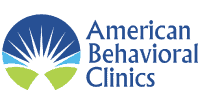
We all know loss is part of life, but grief sometimes hits harder than we might expect. The facts we discuss in this blog can help you spot prolonged grief disorder and address it in a healthy manner.
Prolonged Grief Disorder Is Legitimate
You may not have previously heard of this disorder, but it has recently been added to established healthcare reference publications:
- Prolonged grief disorder was added to the American Psychiatric Association’s Diagnostic and Statistical Manual of Mental Disorders in 2022.
- That same year, the disorder was included in the World Health Organization’s International Classification of Diseases.
Given those organizations’ clout, we can acknowledge the legitimacy of deep, long-lasting grief in people’s lives.
Here’s How to Identify Prolonged Grief Disorder
When loss visits you or a loved one, remember that grief is a universal part of the human experience. To recognize prolonged grief disorder, look for these signs:
- Life-disrupting grief extending past 12 months in adults or six months in children
- Overwhelming sadness, anger or other emotional pain
- Profound detachment from relationships, society and daily activities
- A lasting unwillingness to accept the death
- An inability to attach meaning to life
The possible symptoms of this significant disorder extend beyond that list. For a deeper look, visit Verywell Health’s recent article on prolonged grief disorder.
What Are Healthy Ways to Address Prolonged Grief Disorder?
Persistent grief can cause behaviors that further disrupt the sufferer’s life. Instead, seek positive ways to counteract prolonged grief disorder:
- Talk to family and friends about the beloved deceased person.
- Join a support group.
- Pursue empathetic professional therapy.
If grief’s trauma is significantly disrupting your life or the life of a loved one, we invite you to talk to us at American Behavioral Clinics. Our experienced professionals offer reliable, healthy strategies for processing grief. Contact us to learn more now.
Existing Patients and New Patients, Call us to schedule an appointment, get a prescription refill or just to ask a question:
New Patients ONLY - Want to contact us through a form? CLICK HERE to fill out our contact form.





